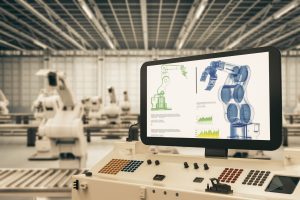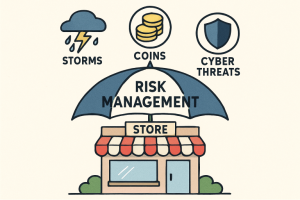Search engine optimization (SEO) is a key pillar for generating traffic, enhancing brand visibility, and keeping competitiveness in the ever-changing digital marketing arena. Of the many aspects of SEO, backlinking—the process of obtaining inbound connections from other sites—remains one of the most important for search engines. Building a high-quality backlink profile, meanwhile, may be labor-intensive and sometimes challenging. Artificial intelligence (AI) comes in here, offering digital marketers and SEO experts strong tools to simplify, optimize, and enhance their backlinking plans.
Backlinking’s Importance in SEO
Understanding its function first will help one to plunge into how artificial intelligence improves backlinking. Backlinks are “votes of confidence” from one website to another. Search engines read these votes as endorsements and use them to assess a website’s authority, relevancy, and trustworthiness. Not all backlinks, though, are equal. Links from relevant, authoritative websites have greater weight than those from low-quality or unrelated domains. An effective backlinking plan, therefore, stresses quality over quantity. Keep reviewing the techniques below to discover that enhancing your backlink profile is as easy as converting ETH to USD.
8 Ways Artificial Intelligence Helps Backlinking Strategies
Artificial intelligence has several advantages that streamline and expedite the backlink-building process, given its ability to analyze large data sets, identify trends, and learn over time.
1. Finding Good Link Prospects
Finding websites that are both authoritative and related to your niche is one of the main difficulties in backlinking. AI-driven technologies can scour the internet to find possible linking prospects satisfying certain requirements, such as domain authority, niche relevance, traffic levels, and content quality. By using machine learning, these technologies help marketers save hours of human research by giving priority to websites most likely to provide useful links.
2. Examining Backlink Profiles of Rivals
Effective SEO depends on competitor research. AI can quickly examine rivals’ backlink profiles to find which sites are linked to them, what material drew those links, and the link’s background. By aiming at similar domains or creating better material to pull backlinks from the same sources, SEO experts can copy or enhance these tactics.
3. Relationship Building and Outreach Automation
Often, backlink building calls for outreach to journalists, bloggers, or website owners asking for links. Traditionally, this means considerable time spent on drafting tailored emails, monitoring replies, and sustaining relationships. By producing tailored outreach messages depending on recipient data, monitoring open and response rates, and learning which outreach techniques are most successful, AI simplifies this process. Some technologies also recommend follow-up activities depending on past interactions to increase general conversion rates.
4. Linkable Content Optimization
Organic backlink growth depends on producing material that organically draws backlinks, often referred to as “linkable assets.” By examining which kinds of material in your sector make the most backlinks and suggesting subjects, forms, and structures likely to succeed, AI helps. AI may also help with content generation by recommending data points, graphics, and keyword placements to increase a piece’s value and exposure. This produces material that not only ranks highly but also draws natural links from other publishers.
5. Real-Time Backlink Monitoring
Profiles of backlinks are dynamic. Daily link growth or loss is possible; some may turn poisonous and damage your SEO if they originate from spammy or unrelated websites. AI-powered technologies provide real-time monitoring of backlink profiles, notifying SEO experts when links are added or withdrawn, and assessing the quality of each connection. By flagging possibly dangerous backlinks and advising disavowal measures, these technologies help to preserve a good and penalty-free profile.
6. Predictive Link Scoring
Some chances are not certain to yield outcomes. Based on past performance, the website’s responsiveness, and its ability to fit with your niche, AI can give each possible backlink a prediction grade. Focusing on the prospects most likely to convert into valuable backlinks, these predictive algorithms enable marketers to prioritize their efforts.
7. Relevance Study Using Natural Language Processing
AI evaluates the semantic relevance between your material and possible linked sites using Natural Language Processing (NLP). Maintaining confidence with search engines depends on ensuring backlinks come from thematically consistent sources. Relevance-based link development is more sustainable and avoids penalties resulting from deceptive techniques like link farming.
8. Avoiding Penalties and Black-Hat Tactics
Search engines regularly change their algorithms to find unnatural backlinking behavior. By examining backlink patterns for indicators of manipulation, such as unexpected increases in link acquisition or over-optimized anchor text, AI technologies enable marketers to remain on the correct side of these algorithms. AI enables digital marketers to keep ethical, long-term link-building plans by early identification of dangerous conduct.
Different AI Tool Types For Backlinking
- Backlinking makes use of artificial intelligence capabilities that can usually be classified into various groups:
- SEO audit tools offer thorough examinations of domain health, backlink profiles, and competitor data.
- Systems for managing outreach: Tools that track replies, automate and customize email outreach efforts, and follow up.
- These help you produce high-quality, linkable material with integrated SEO suggestions.
- Systems that scour the internet to find possible linking domains and rate them according to certain criteria.
- Real-time systems track link acquisition, loss, quality, and performance.
Although many of these tools are driven by proprietary machine learning algorithms, what counts most to marketers is their capacity to simplify processes, lower manual labor, and enhance outcomes.
Conclusion
AI is changing how digital marketers and SEO experts think about backlink creation. AI tools let professionals concentrate on strategy and creativity instead of boring chores by automating research, outreach, and analysis. Artificial intelligence not only increases productivity but also enhances the quality and sustainability of backlinking activities with predictive insights, content recommendations, and risk management.
Using artificial intelligence for backlink profile creation will probably become the norm for high-performing SEO teams as the digital environment gets more competitive. Marketers who include artificial intelligence in their processes will be able to create safer, more intelligent, and stronger link-building plans that produce long-term outcomes.











